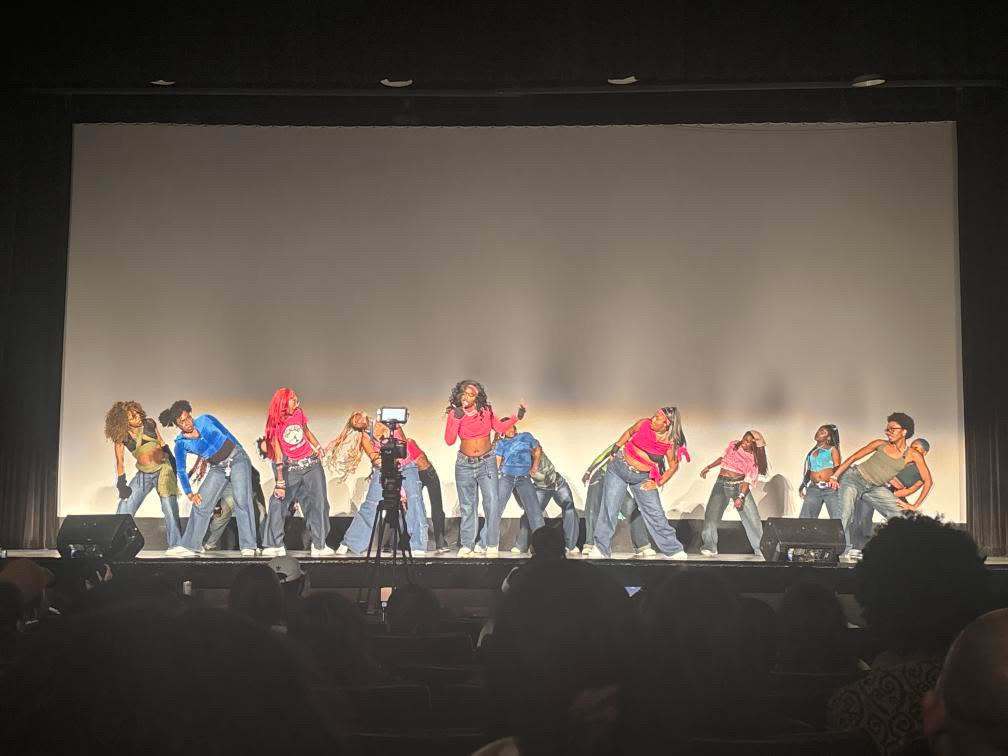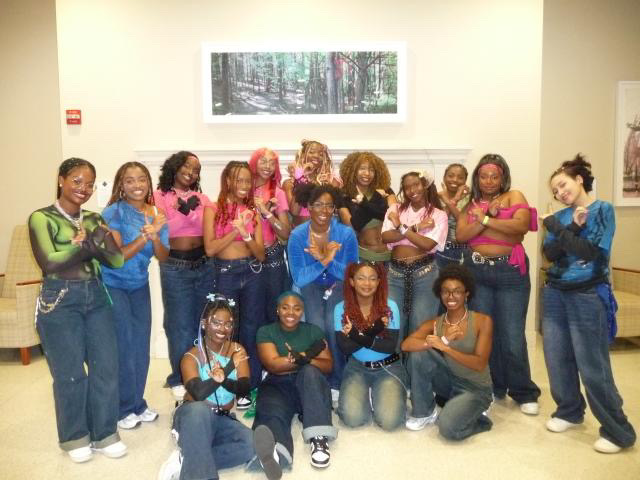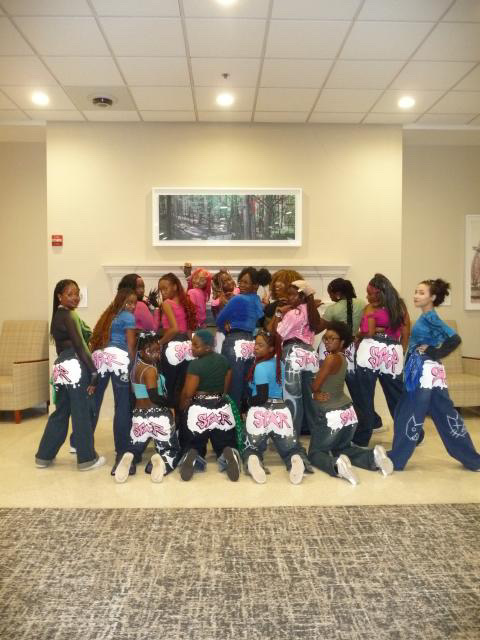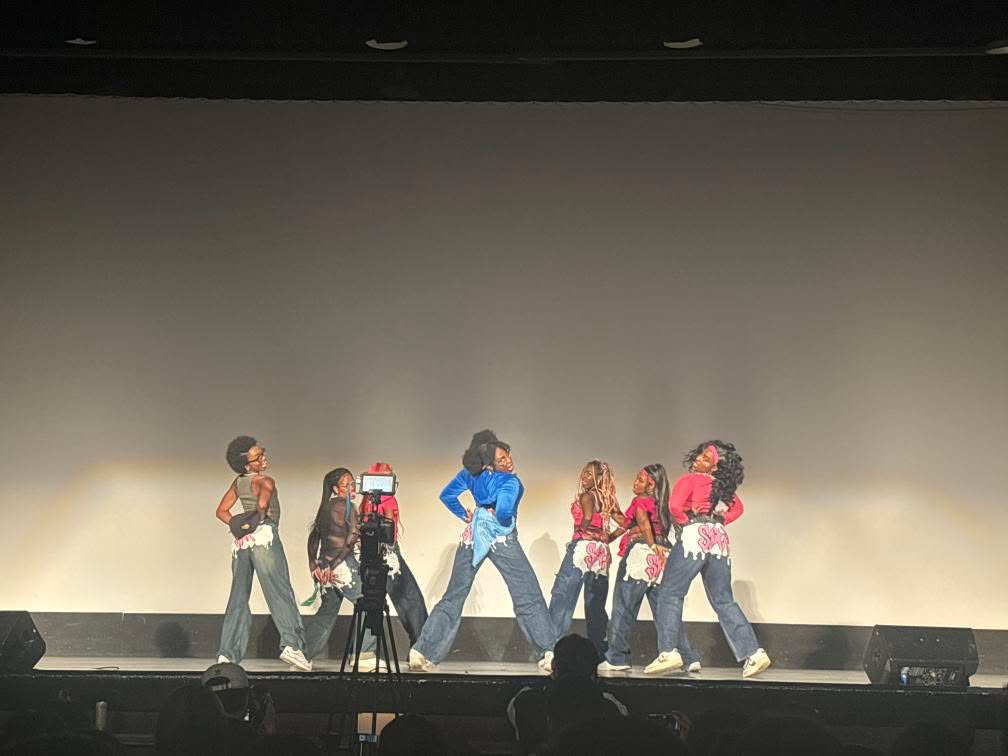Under the bright stage lights of the Hoff Theater at the University of Maryland, the very first HBCU K-pop dance team, 1 Of A Kind (1OAK), made history as the first HBCU K-pop dance team to perform in the GGWB Ultimate Showcase, a high-stakes K-pop dance competition where 12 teams competed for a coveted cash prize.
GWBB, a student dance organization at the University of Maryland, has performed and held showcases since 2011. Open to all Asian pop covers, the annual Ultimate Showcase began in 2022.
While the team did not place in the top three to win the award, Zenani Minor, a senior sociology major from California and president of 1OAK, ran the team’s practices with firm guidance. The 16 girls completed run-throughs of the showcase routine for weeks leading up to the performance date, March 29.
The theme, “GAME PARADISE: A Journey Through Alternative Realities,” occupied the team members’ minds since December as they meticulously searched through songs that showcased the core focus while navigating how to maintain Black dance moves and elements of hip-hop in their performance. Minor said the group’s diversity allowed them to create a unique show.
“It’s like an exchange of knowledge. We are just a unique melting pot of ideas, creativity and personality and no one can really touch that. Especially as Black people, because we set the tone for everything else,” Minor said.
Initially, a music subculture that gained popularity within South Korea in the 90s, Korean pop music, or K-pop, transformed into a global phenomenon by mixing elements of Western pop with Korean lyrics. K-pop sensation group BTS surpassed 4 billion streams on Spotify in 2024, making them the most-streamed group on the platform, according to Chartmasters.
While various K-pop groups have become worldwide sensations, they have also received backlash for borrowing aspects of non-Korean cultures.
Most recently, two members of the girl group, BLACKPINK, went viral for a leaked video that showed the women rapping the N-word.
The footage reportedly came from YG Entertainment, the talent agency representing some of the most popular K-pop groups. It featured the artists during their pre-debut evaluations, where they covered already-existing songs.
Nicci Prather, a senior classical voice major from Memphis and founding member of 1OAK, was one of the girls who participated in the showcase. She believes K-pop is inherently Black and that the line between cultural appropriation and appreciation is extremely thin.
Prather touched on how K-pop draws heavily from Black culture, saying, “It becomes kind of a loop when it reaches us again because we’re taking our culture that they changed and made something brand new, an amalgamation of things.”
She described how the team reclaimed these influences in their performance.
“Then we take it back to say, ‘Let’s make it even Blacker.’ That’s kind of what our newest piece does the most right now,” Prather said, referring to how they emphasized a Busta Rhymes reference in their performance.
The team was founded in 2022 as a subsection of the university’s Korean Culture Club, an organization dedicated to students interested in the Korean language and culture. While the club disbanded in 2022, the founder of 1OAK, Kristen McDaniel, created the dance team out of the desire to continue the legacy.
The team’s TikTok account, @hu_1oak, has over 200,000 likes and a YouTube channel with over 50,000 views, as of March 31. The group regularly produces and posts their covers of K-pop dance routines, mimicking the style of the original music videos.
Reinah McNeil, a senior broadcast journalism major from Arizona, is the creative director of 1OAK and played a critical role in the organization’s inception. She expressed the discernment she carries when picking out songs and dance sequences from K-pop artists that cross the line into cultural appropriation.
“People have the ability to express their frustration or distaste for how these groups interact with our culture and we’re still able to have respectful conversations,” McNeil said. “We also respect that some people may not care as much.”
McNeil aimed to include songs from groups that collaborate with Black producers and artists. The team performed choreography to several popular K-pop songs, specifically “90’s Love” by NCT U, “Zoom” by BadVillian and “Walking on Water” by Stray Kids.
One notable contributor is Tay Jasper, an African-American songwriter who has co-written K-pop songs for Korean groups like NCT U. Teddy Riley and Erika de Casier are among the several Black artists who write songs for K-pop groups.
1OAK’s commitment to showcasing Black representation in K-pop extends beyond the dance floor. While they strive for inclusivity in their performances, the group faces challenges within their own institution.
Previously, the team won the Korean Culture Center’s dance competition two years in a row. However, they’ve only received recognition from the university’s Instagram page for performing in the East Asian Languages department’s Lunar New Year celebration.
Minor doesn’t believe their group has been “officially recognized by any means.”
“We’ve been trying to build up ourselves in our own way and then let the recognition come as it comes,” McNeil said. “I don’t think Howard recognizing us is the most important thing, but obviously, it’s still nice because it helps us get support. And also, it’s nice to see something that’s not traditional be recognized. I think it’s really important.”
The group has been tasked with finding their own practice spaces, leading them to hold various practices in Blackburn rooms, if available, and rehearse outside when necessary. In addition, the group lacks a space to place their trophies and banners from their previously won competitions.
“It’s not a lot of people’s core focus. But I would like to say that we are now making bigger waves than we’ve had before, and so more people are starting to recognize us. As long as we keep going on this upward trend, we’re good,” Minor said.
Copy edited by Anijah Franklin



































